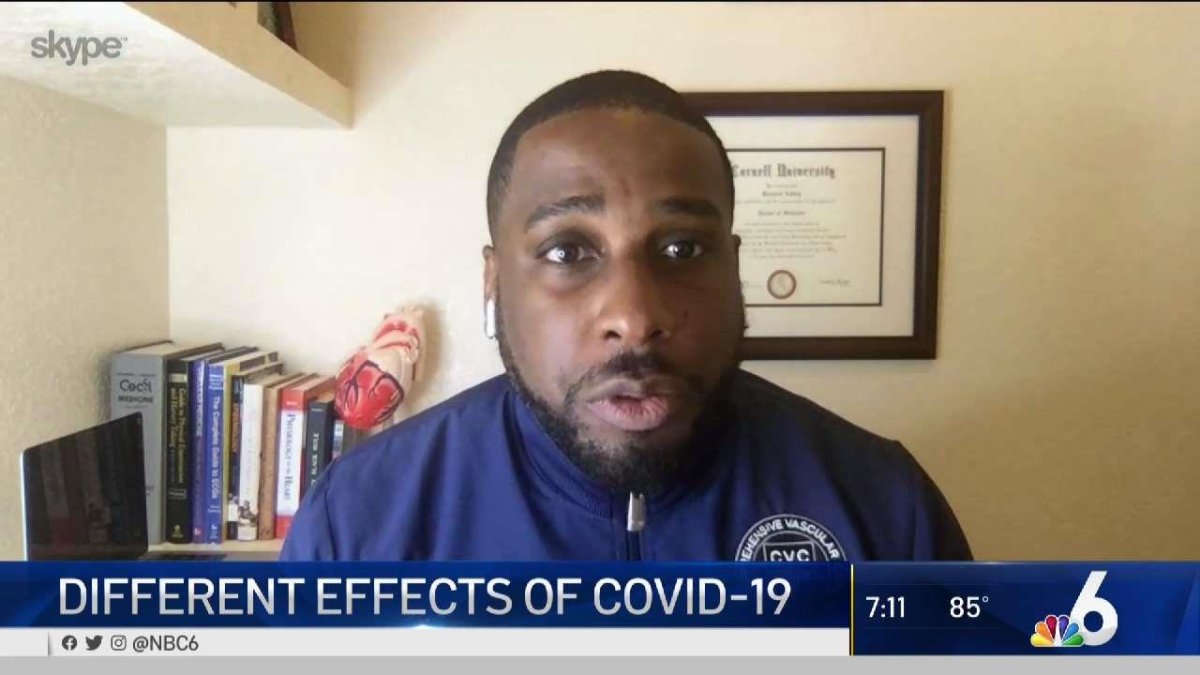
After several people at NBC 6 tested positive for COVID-19, a local doctor is weighing in on what we do know and still don’t know about the virus.
After several people at NBC 6 tested positive for COVID-19, a local doctor is weighing in on what we do know and still don't know about the virus.
Miami cardiologist Dr. Bernard Ashby spoke to NBC 6 anchor Sheli Muñiz.
SHELI: Dr. Ashby, put context to each of our experiences where some of us felt COVID-19 more than others.
ASHBY: you are experiencing what we have been seeing this entire experience with the COVID-19 pandemic. Basically, what we’re finding is that every individual has a different experience when it comes to this virus and we do not know why. We have some hints, we have some hypotheses, but we’re not sure.
SHELI: People have been reporting discrepancies in testing. For instance, just five days after I got a positive result, I tested negative and have no antibodies. Is it possible that I could have gotten a false positive?
ASHBY: It is possible but it’s also possible that the antibody test that you had did not detect any antibodies that you had because, one, maybe you didn’t have enough time to develop antibodies; two, maybe you do have an immunity to it but you didn’t produce the particular antibody that the test is looking for. So that is also a factor.
SHELI: Just to be clear here, if someone gets COVID, they are not necessarily immune to it -- so don’t let your guard down after you contract it?
Local
ASHBY: Exactly, we think you’re immune for a period of time, but we're not sure. So, don’t let your guard down, even if you had it. Even if you had a positive antibody test, still use those universal precautions that we talk about: mask use, hand sanitizer, avoiding indoor locations if at all possible.
SHELI: This is not just a physical illness, but a mental one. For Anthony James, NBC 6 photojournalist, he says he has some PTSD. For me, the diagnosis came with some shame because there is a stigma.
ASHBY: You hit the nail on the head. You can see it in popular culture. If somebody coughs around you, they do not get the benefit of the doubt. If you say you have allergies, chronic cough, no one is going to believe you because of the virus and folks think because you had the virus there’s something wrong with you. Actually, the virus itself affects the neurological system in ways we have yet to elucidate, but one of the manifestations that we have seen is the loss of taste and smell. That’s neurological manifestation of the virus. Again, this virus is so new there’s so much we don’t know, but suffice it to say, that there are a myriad of symptoms and manifestations of the virus that we have yet to identify, so what your colleague is experiencing is not unusual.